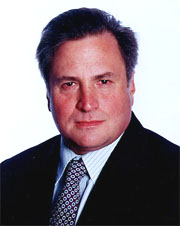 By Dick Morris October 03, 2003
As he surges into the fund- raising lead among the Democratic '04 presidential contenders, Howard Dean is also catalyzing the most far-reaching of reforms in campaign finance. Indeed, the Dean campaign will likely mark the end of the big money era in our politics, when campaigns were dominated by ultra-wealthy donors or special interests contributing massive amounts of money. Dean is proving that, through the Internet, he can mobilize large numbers of relatively small contributors, whose combined giving can overwhelm that of wealthy special-interest donors. In so doing, he's also ending the oligarchy of monied power in the Democratic Party typified by Terry McAuliffe, the Democratic National Committee chairman whose sole qualification is his ability to raise big bucks. As the current quarter draws to a close, Dean, having collected upward of $23 million since the year began, largely online, will likely surge past John Kerry for the lead in total fund-raising. Better yet, since his money is raised at a lower cost than that raised by his rivals (Internet fund-raising is free), he'll have an even bigger edge in total cash on hand. And since most of his donors have not yet contributed the $2,000 legal maximum, they can likely give and give again as the primary campaign heats up. But Dean's impact in changing campaign financing is not confined to the input side of the ledger. His surge to first place among Democratic contenders has been accomplished without paid TV advertising in any quantity and with relatively little free media coverage until recently. Dean is demonstrating how Internet-based, grass-roots (or cyber-roots) campaigning can build a political base in each of the primary states sufficient to counter the TV-created bases of his rivals. In the Internet era, it is cheaper to reach voters one-on-one than through mass media. Dean has perfected the art of amassing a huge base of supporters by below-the-radar direct contact online, giving him a base of voters sufficient to lead in Iowa, New Hampshire and to tie in South Carolina - all vital early contests. Legislative action will never bring genuine campaign-finance reform. Consultants will prove endlessly inventive in gaming whatever system the reformers can devise so as to give their candidate an edge and allow the power of massive money to be felt. But reform laws will become irrelevant and redundant as the Internet replaces the special-interest fat cats as the best way to raise money and takes the place of TV as the most effective way to get votes. Mass fund-raising has always generated the cleanest money in politics. Huge mailings that generate tens of thousands of donors have always produced funds with the fewest strings attached: When a candidate can't invite his key donors to sleep in the Lincoln bedroom because the funds he raised came from small donations from masses of people, democracy is well served. But mass fund-raising via mailing and phoning, the pre-Internet techniques, has always suffered from the high cost of raising the money. Fund-raising phone calls cost between 50 cents and $1 each; direct mailings typically cost in the 40 to 60 cent range per envelope. Using phone and "snail mail," it takes a lot of up-front cash to be able to raise funds - and that seed money typically comes from wealthy or special-interest donors. Then, too, the high costs mean that campaigns actually lose money on their initial mail and phone solicitations. Most campaigns only show a net return only through later mailings, to those who've already given, appealing for repeat donations. But Internet fund-raising does not have these same high unit costs and so can form the basis of a campaign's financing in a way postal mailings and phone calls cannot. After the Dean campaign, candidates will not have to go hat in hand to the special interests to raise their money. Increasingly, they'll find that it is better to campaign online than on the air.
dmredding@aol.com Dick Morris was an adviser to Bill Clinton for 20 years. Morris is a political consultant, commentator and best selling author. Look for his newest book, "Power Plays" available now and look for Dick's new book, "Off With Their Heads - Traitors, Crooks & Obstructionists In American Politics". Distributed by Cagle Cartoons, Inc. to subscribers for publication.
|
||
